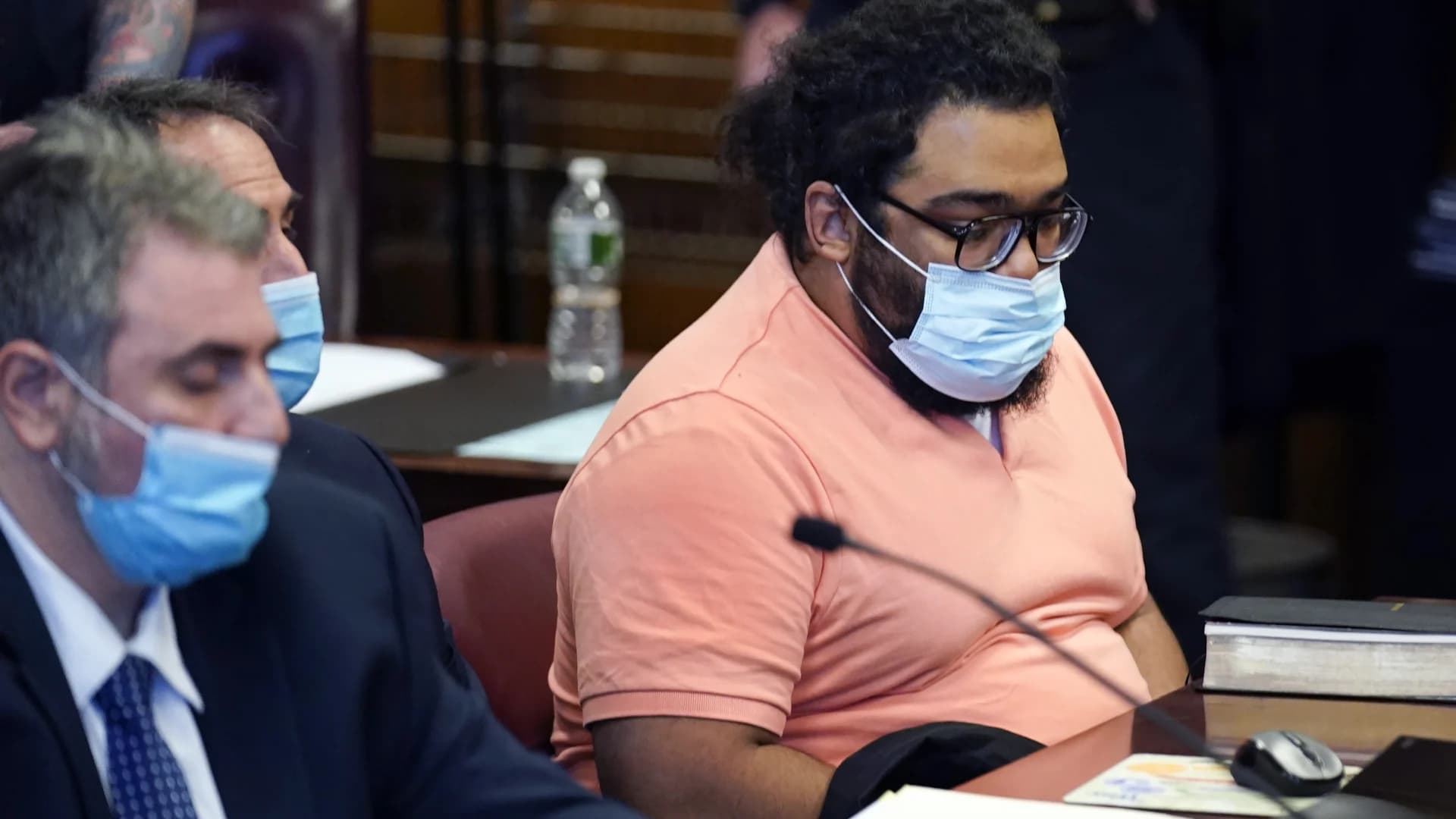More Stories

NEW YORK (AP) — After Richard Rojas was kicked out of the Navy, he began sharing disturbing thoughts that were coursing through his head — that cars were following him, that aircraft were dusting him with chemicals, that his meals were poisoned.
An uncle, Ramon Reyes, said Rojas offered a self-diagnosis: “You know that I’m crazy. And they’re not giving me the help that I need.”
Whether Rojas was correct about his mental condition is at the crux of a trial in New York, where he mounted a sidewalk in his car in 2017 and mowed down pedestrians in Times Square.
A teen tourist from Michigan died in front of her mother in the attack. More than 20 other people were injured.
Rojas, 31, is fighting murder, assault and other charges at a trial unfolding in the shadow of mass shootings across the country and the political debate in which gun-control opponents have sought to blame the violence on failures in mental health care.
At the outset, state Judge Daniel Conviser floated the possibility of a paradoxical outcome in the Rojas case: Jurors could find Rojas guilty, while at the same time deciding that he “lacked responsibility by reason of mental disease or defect.” The judge said the finding would qualify him for an open ended “involuntary mental commitment” instead of a lengthy prison term.
Prosecutors concede Rojas had some mental challenges and that a motive for the attack is not clear cut. But they also argue that the defendant had led a mostly normal life — serving in the military, getting a real estate license, making friends — and that he doesn't meet the insanity standard needed to clear him of responsibility. They say he had several chances to stop his car on a bustling day in Times Squares but ruthlessly kept going until he crashed.
“It was impossible for him not to know exactly what was happening,” prosecutor Alfred Peterson told the jury.
A prosecution case that ended late last month focused largely on harrowing accounts of victims who survived the carnage in Times Square. With the trial winding down, the defense has been trying to counter in recent days by drilling down on Rojas’ troubled past to try to convince the jury he was too sick to know what he was doing.
Family members, including Reyes, have described the wave of paranoia from the witness stand.
A key defense witness has been Ziv Cohen, a psychiatrist on the faculty at Weill Cornell Medical College and at Columbia University, who diagnosed Rojas as schizophrenic. Unlike more common psychological disorders, schizophrenia is “a brain disease, so it’s a chemical imbalance in the brain” that made Rojas prone to hallucinations, Cohen testified.
While in the Navy, Rojas began to hear voices, the doctor said. In particular, he was hearing from “James” — a "supernatural, God-like figure who had special information,” he testified.
On the day of the rampage, his imaginary guide told Rojas he needed to crash his car into “spirits” around him in order to send them to heaven and to release Rojas “from the torture that he is experiencing as part of his psychosis,” he testified.
“At a certain point, the psychosis becomes so severe that he can’t control his behavior anymore,” he said.
Family members testified about their despair over seeing Rojas disintegrate after he was discharged from the Navy in 2014 — the result of a court martial stemming from an arrest for beating a cab driver.
A brother, Wilmer Veras, took the witness stand to recall how a delusional Rojas was obsessed with keeping tape over his phone and laptop camera lenses in case he was being watched. When out in the world, he would “look for things that weren’t there” and “say people were following him around.” He even accused Veras of “doing voodoo on him."
At that point, “I told him he really needed to get help; that he was really losing it,” Veras said.
The uncle, Ramon Reyes, recounted a phone call a few days before the Times Square crash in which Rojas asked for help. Reyes told him to come by his home the next day so he could take him to a doctor, but “he never showed up,” he said.
When a relative contacted Reyes saying she saw a TV report about an arrest that had images of someone who looked like Rojas, the uncle began frantically calling his nephew hoping it wasn’t him, he testified. The uncle was asked if Rojas ever picked up.
“No,” the witness responded, then wept.
More from News 12
1:12

4 people injured, including 2 firefighters, in Kensington fire

Optimum Fiber continues to lead tri-state for best-in-class internet performance
1:24

MTA bus driver punched during argument in East Flatbush; police release images of person they’re searching for
0:20

The Fresh Grocer opens in Downtown Brooklyn Friday
0:26

Mother, infant dead in Queens fire
1:40
